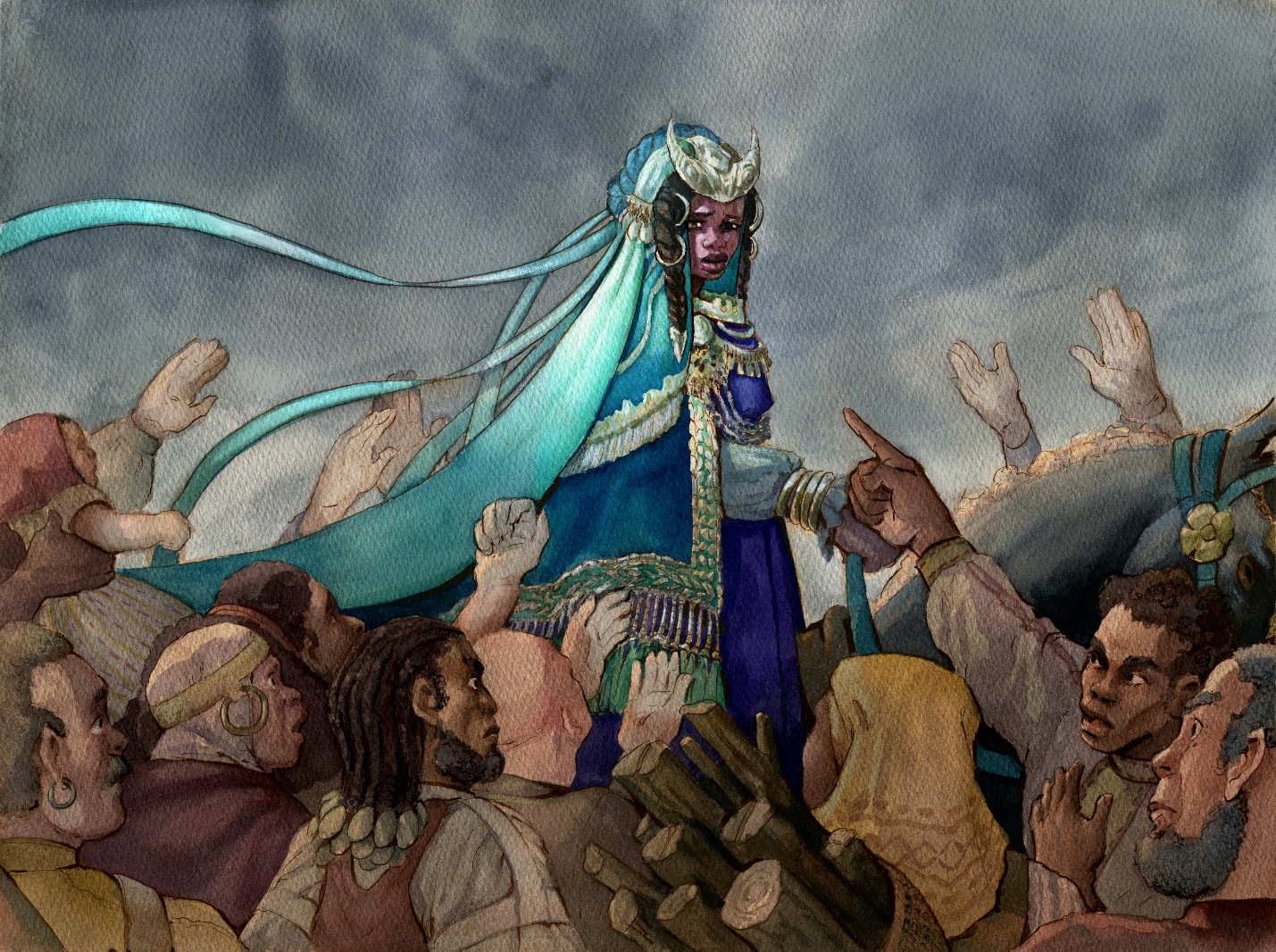Chapter 59:
Okatto
By morning, the boots were gone.
The campfire had long gone out, with the bones of the doves charred and split at the bottom.
Aggo was awake nearby, grazing in the early morning light, and whickered when he saw her awake, coming over nuzzle her.
Moth rubbed the heavy sleep from her eyes, looking towards Quin’s camp.
There was neither light nor smoke to show that Quin was still in the copse. When Moth had kicked her fire over and rode Aggo to Quin’s camp, there wasn’t a trace that anyone had been there at all – she couldn’t even smell a campfire.
Losing track of Quin was like losing track of a centipede – though happy it was gone she dreaded where it might reappear. Constantly squinting into the deep, moving dappled shade for a white reindeer, Moth went to the stream and washed as best she could.
She sighed, knowing she was not as impressive as the first day she had left the House of Spring, and she felt sorry for all the hard work Agate had lost. Her outfit had gotten caked with dust and mud. She dug through her bags, and found a package marked ‘First Appearance.’
There was a letter attached, and Moth pulled it open, watching as a length of notes unfurled in her hand, detailing why each aspect of the outfit was chosen and how it correlated to traditions – new or old – that were interwoven through Hiren.
